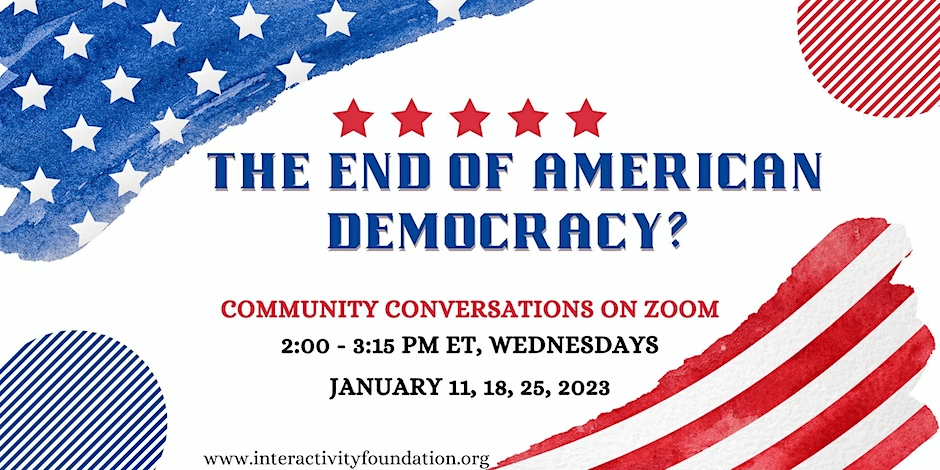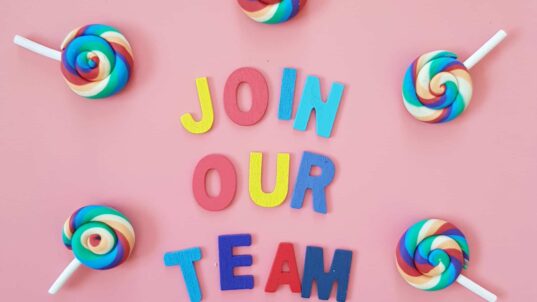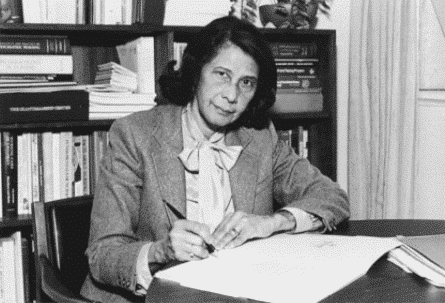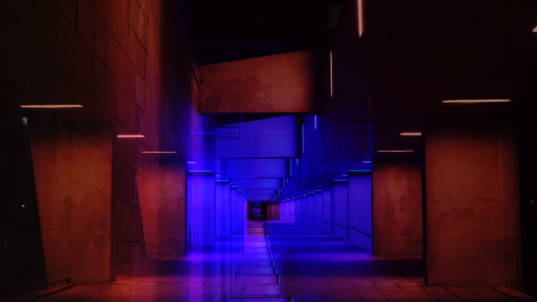
What would it look like if democracy were to collapse here in the US?
Imagine you find yourself transported to a future where democracy in America has ended. Picture what it’s like. How do you know democracy is over? What do you notice that’s different? How does it look, sound, and feel? How might our daily lives be changed? What were the steps that led to democracy’s demise? What changes could we make to avoid this dark future? These and other questions were explored and expanded on by participants last week in our first session of this three-part community conversation series on The End of American Democracy. Below we have summarized some of the different visions for this future developed by participants in this first discussion, together with other key concerns they highlighted.
What are some of the key processes, institutions or pillars that embody or support our democracy? How might they be at risk, and what might we do to strengthen them? Those questions will animate our second session in this series on Wednesday, January 18th at 2:00 PM (ET). Please join us by registering via Eventbrite (scroll to select the January 18th session).
Signs of American democracy at risk
- Rising levels of fragmentation and polarization, socially, politically, and culturally, with overt racism, sexism, and other forms of exclusion
- Declining civility and the growing inability to discuss or engage with differing perspectives
- Rising economic and political inequality that stokes fear, resentment, and despair
- Rising anger in public life over many issues such as healthcare, racism, gun control, reproductive rights, etc.
- Failures of our democratic norms, like the peaceful transfer of power, and failure of the institutions that embody or protect those norms
- Growing voter suppression, disenfranchisement, and other threats to free and fair elections, like gerrymandering and voting restrictions
- Diminished reproductive and human rights for women
- Increasing misinformation and disinformation, magnified by information silos and confirmation bias
- Declining trust in–
- Media of all types–social media, news media; including the concern that the media profits from misinformation and outrage
- Science and other objective processes for understanding our world
- Truth, or a sense of a shared reality that is knowable by all
- Our fellow humans, especially those who differ from us
- Diminishing free speech rights and rising censorship, with increased book bannings and proposed restrictions to free speech
- Declining trust in and support for institutions: we’re rejecting them but not creating new or better ones
What might you see if American democracy came to an end?
- There might be different components or features of an authoritarian state–
- No elections or unfair elections and no peaceful transfers of power
- No functioning legal or justice system or one twisted to serve solely the interests of the dominant group
- No individual or civil rights, such as, no freedoms of speech, religion, assembly, or protest; no free press, no due process, no right to privacy, no reproductive freedoms, etc.
- Political dissent is outlawed and enforced by the criminal justice system
- Police and security forces are used to control the masses and are no longer subject to civilian democratic control
- Lots of state propaganda and control over all media, including the censoring of dissent or alternative perspectives, and the exclusion of disfavored views in educational settings
- Establishment of targeted “outgroups” by race, ethnicity, religion, sex or gender identity, etc., with limitations on their civil rights and the promotion of social and economic discrimination against them
- Enforced sex and gender hierarchies, where women might be banned from full participation in society and lose their political rights (alternatively, what if the situation flipped and males ended up being the ones under control?)
- Disfavored religious groups would be shut down and their places of worship would be banned
- Rampant and constant fear of offering dissent, of becoming known as part of a targeted group, and then losing your civil rights and your social and economic standing
- The loss of communal trust and an increase in tribalism and vigilantism (incentives to turn on others who might be targeted, generating a sense of mutual distrust in the community)
- Government use of psychological warfare and other strategies to keep people divided and powerless, including using digital media and artificial intelligence, confusing people about “reality,” and distracting them with fake realities or entertainment (getting people to live in the metaverse where they can be distracted or manipulated)
- Declining tolerance for difference or diversity with an enforced conformity of information, of ideas, and of society overall
- Different visions of a possible future authoritarian state–
- As in A Handmaid’s Tale or The Stepford Wives, it might be a society with few civil rights (or only for the dominant group), with forced conformity (since everyone exists to support the state), and complete societal control, even over things like reproduction and children
- A surveillance state including state monitoring of individuals and people spying on and reporting their neighbors
- A corporate state (controlled by one or more corporations) with little to no regulations to protect citizens or the public interest
- An entertainment-obsessed society (“bread & circuses”) where people no longer engage with public matters
- The “Disunited States” where the U.S. dissolves along factional lines
- The boiling frog where democracy gradually, then suddenly slips away from us
- A return to a fragmented past where we only care about what is happening in our near communities
- Rule by the most ruthless, where violence is used by those who are willing to break the prior norms of democratic restraint
- All of these visions convey feelings of despair, loss of control, loss of social connection, fear, along with the sense that all of this is not that far from our current state
Possible root causes of declining democracy?
- Economic insecurity and economic inequality
- The growth of fear, which narrows our perspectives and lessens tolerance as we focus more on individual survival and less on the greater good
- Some people prefer security and certainty over any ambiguity or complexity
- The misuse of social media, artificial intelligence, and marketing methods to stoke fear and intolerance of outgroups, spread disinformation, and to promote anti-democratic policy solutions
- Going online for news and social interactions where we can choose our connections, reinforce our biases, and avoid the hard work of engaging with others
- Moral decay, including a willingness to tolerate corruption, hostility to outgroups, and a loss of the sense of the common good
- Under-education: we don’t understand or fully appreciate our democratic institutions and our rights and responsibilities as democratic citizens
- We struggle to appreciate the role of a free press, an informed citizenry, the rule of law, or having a functioning justice system
- We struggle to appreciate how our choice of economy (a mix of free market with certain public goods) works with (or against) our democratic preferences
- We struggle to understand how to have a pluralistic democracy, one that is a mix of many cultures, peoples, and identities
- Big money is being used now (and has been for decades) to divide the population and support right wing, anti-democratic initiatives
- Digital media is currently sowing seeds of distrust, disengagement, and calling into question our relationship with reality
Other signs and effects of declining support for democracy?
- Changing public education to focus more on rote learning and official beliefs (e.g., whitewashing our history) rather than fostering critical thinking skills
- Limits on science and on the exchange of dissenting ideas
- Economic decline stemming from the turn away from science and the free flow of ideas, with a likely increase in black market commerce
- As life gets harder; there will be more struggle to keep jobs and manage families, with more substance abuse as a coping mechanism
- Psychologically people will long for a “strong man” ruler to fix society
- Logic will become twisted to see the authoritarian state as the savior rather than the destroyer of freedom
- Government and society will grow increasingly unable to deal effectively with complex challenges or catastrophes, since no one can express alternative viewpoints or admit what went wrong
- There will be talk of suspending the Constitution with little or no agreement on the process rules for how democracy works
- As our social fabric continues to fray, people will fear voicing minority views (especially if they are in an outgroup) and will be less interested in understanding other perspectives as alternative views are silenced
- Growing feelings of despair, fear, or apathy about interacting with our fellow citizens
- Our election process continues to be unrepresentative, and the results more rigged by money, gerrymandering, and overt partisanship
- People may not notice a change, since they are adaptable and will adjust so they can keep living their everyday lives
Signs of hope for American democracy?
- Even with so many assaults on democracy, some parts of our system are still working
- There are more younger voters and there is increased turnout and engagement
- Immigration provides ongoing energy, enthusiasm, and ideas for our democracy
- There’s evidence of learning, for example, for things like media literacy and avoiding confirmation bias, etc.
- The enduring idea and ideals of America, including individual rights and opportunity for all, remain so compelling that they help to sustain our democracy
- We can still (mostly) express ourselves freely and, in particular, we can criticize our elected officials
- We do still have some degree of social trust (though more at the individual level than at the institutional level) and, despite the strategies to separate us, we still have the urge to be connected
- We’re having this conversation
- There is, and will be, resistance to declining democracy:
- Riots. Lots of riots, like in Iran right now. People will resist openly.
- Librarians will resist. Libraries will be hubs of resistance. No matter the twisted logic or misinformation, libraries will make it their mission to distribute truth.
- We can anticipate global resistance as well.
What changes can we make to ensure a democratic future?
- Make democracy work: address our fears and refocus on public policies for the common good:
- Address economic equality and economic insecurity: use democracy to ensure people have the means to meet their material needs so they are less likely to turn against each other or support a “strong man” leader
- Show that democratic disagreement is possible without punishing dissent
- Stop gerrymandering and enable fair representation for all Americans
- Get money out of politics: re-enact and enforce regulations that strictly limit political donations (on all persons and entities) at all levels of government and better regulate lobbying lobbying and lobbyists as well
- Address misinformation and misuse of free speech; promote more responsible speech
- Focus our media on how political opponents can cooperate and work together for the public interest and less on politics as a zero-sum game
- Consider mandatory voting as in other democracies
- Promote respect for and openness to diversity and difference. See it as an important strength of democracy.
- Focus on making a more equal society for all by taking action to honestly confront our national history of racism and to bar discrimination based on race, sex, gender, ethnicity, etc.
- Try to understand the perspectives of others, and focus on understanding and appreciating different types of communities (e.g., urban and rural)
- Enable and encourage travel around the country–to better understand and appreciate its diversity
- Foster domestic exchange programs, so students can see what it’s like to live in different parts of America
- Establish a year of service after high school or college to have young people mix and live with different types of people from across the US and develop a sense of the common good across group identities
- Establish a mandatory term of public service to build better understanding among us while working on projects for the public benefit
- Harness mass media communication to foster this embrace of the diversity of America
- Go local: Restore faith in democratic government by starting at the local level; get more people involved at the local level, where our lives are most noticeably impacted
- We need more community activities and projects (gardens, local festivals, etc.) that people can work on together to build trust.
- Build relationships with and help your neighbors even, or especially, when you disagree with them
- Support your local public libraries, newspapers, and other media
- Improve our education system for democracy
- Revive civics classes; teach how government works and how to be an engaged citizen
- Also focus on history, economics, philosophy, and media literacy



